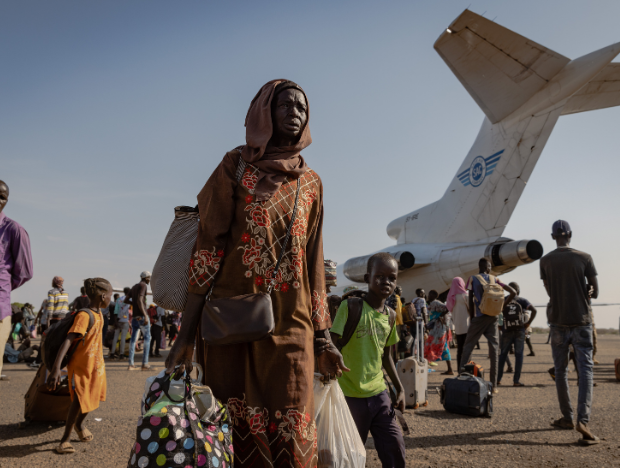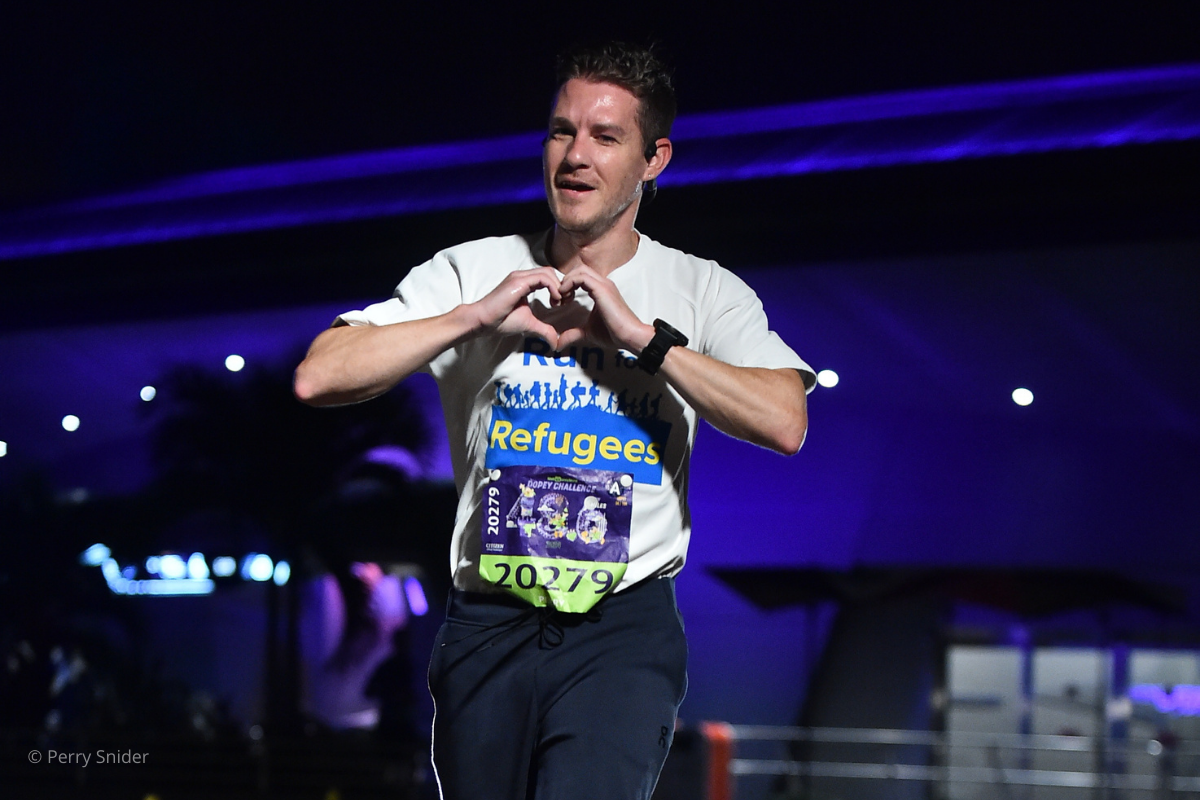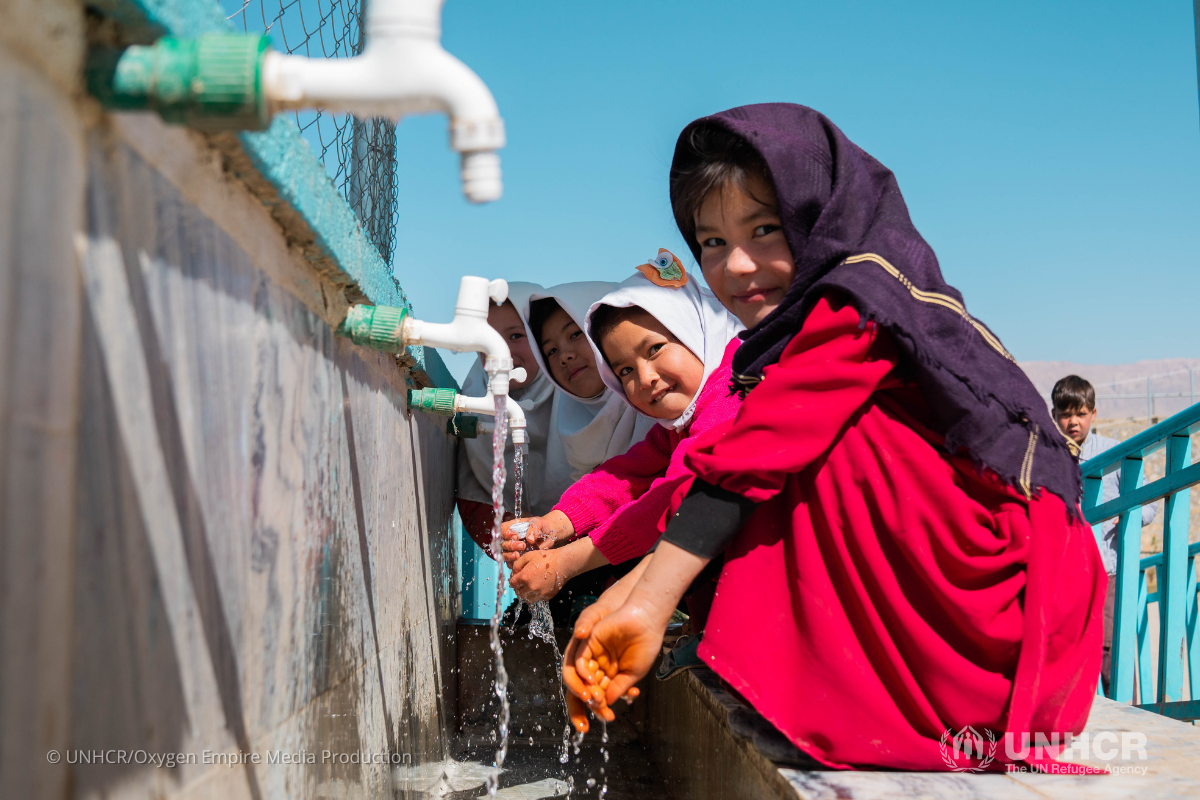World Health Day: Why Vaccine Equity Must Include Refugees
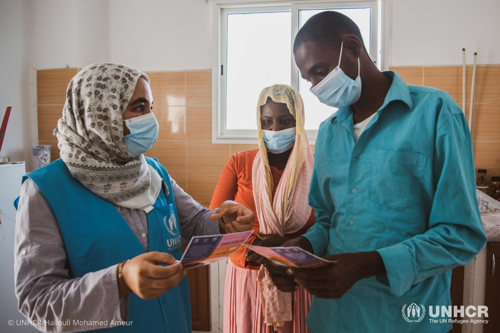
Two years into the COVID-19 pandemic, UNHCR, the UN Refugee Agency, has seen remarkable progress for vaccine inclusion of millions of refugees and forcibly displaced people. According to UNHCR, at least 162 countries in the world now include refugees in their national COVID-19 vaccination plans. Despite these achievements, a majority of the world’s refugees are being hosted in low- and middle-income countries where COVID-19 response capacities and logistical challenges continue to pose a challenge to vaccine equity.
Since the onset of COVID-19, UNHCR and its global partners have proactively advocated for the equitable inclusion of refugees, internally displaced and stateless populations in national vaccination plans. In May 2020, UNHCR signed an agreement with the World Health Organization to prevent the spread of COVID-19 and advance public health services for millions of displaced people around the world. UNHCR and GAVI, the Vaccine Alliance, signed their first global partnership agreement in February 2021, strengthening their commitment to immunizing refugees, stateless and internally displaced populations.
Two years later, as a result of UNHCR’s global and national efforts, 8.3 million vaccine doses have been distributed to refugees and displaced people across 68 countries.
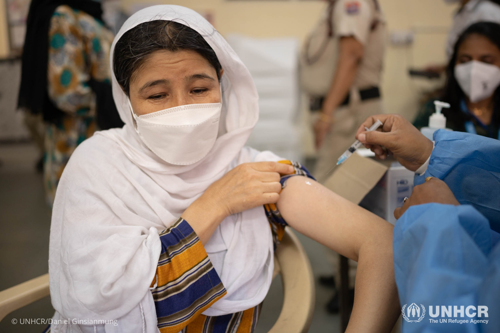
Zahra Shafaie, an Afghan refugee living in India, was able to get her first dose of the COVID-19 vaccine in 2021. After surviving violence in her country and fleeing to India with her three children, the pandemic posed new challenges for her. But since India has included refugees and asylum seekers in their national vaccination plans, refugees like Zahra have been able to get vaccinated. “Thanks to the access of vaccines, we may have a way of ending the coronavirus pandemic and rebuild our lives,” said Zahra.
Although progress has been made by host countries to include refugees in national vaccination plans, vaccination rates for refugees are still lower than the national average. An estimated 85 percent of the world’s refugees and nearly all of the world’s internally displaced people are being hosted in low- and middle-income countries with fragile national health systems.
“Though we are seeing progress on vaccine inclusion, the reality is that most refugees are hosted in developing countries facing critical vaccine access and implementation challenges,” said Jennifer Simon, USA for UNHCR's Senior Director of Advocacy & Community Engagement. “The pandemic is not over, and we must continue to push for access to vaccines for all vulnerable populations.”
Refugees and displaced people are particularly at risk of COVID-19 because they often live in overcrowded or densely populated urban shelters, settlements or camps where they have limited access to water, sanitation systems and health facilities. They are also more likely to face difficulties accessing vaccinations as they may not have the required identification documents or be able to register online. In some cases, vaccination sites may be located too far from refugee settlements or camps.
Over the past two years, COVID-19 has also worsened gender-based violence against displaced and stateless women and girls who are experiencing increased domestic violence, forced marriages, trafficking and sexual exploitation. The devastating socio-economic impacts of the pandemic have disrupted years of progress in gender equality and child protection gains as many girls are leaving school to work, marry and in some cases are being sold. Including refugees and displaced people in the vaccine rollout is key to ending the pandemic and ensuring the protection of displaced women and girls.
Since the beginning of the pandemic, the number of refugees has grown drastically with over 84 million people forced to flee from their homes and the number quickly rising due to the recent crisis in Ukraine. Despite the dire consequences of the pandemic, it is one of UNHCR’s most under-funded crises. UNHCR continues to advocate for greater support of low- and middle-income host countries and full integration of displaced and stateless people in COVID-19 response plans.
How can you help?
No one is safe until everyone is safe. As COVID-19 vaccines become available worldwide, we cannot forget the over 84 million refugees and forcibly displaced people globally who need our support. Add your name to join USA for UNHCR in standing with refugees and their inclusion in vaccine distribution plans.
